The Entrepreneurs’ Formula To Execute Business Information With Craig Ballantyne
Podcast: Play in new window | Download
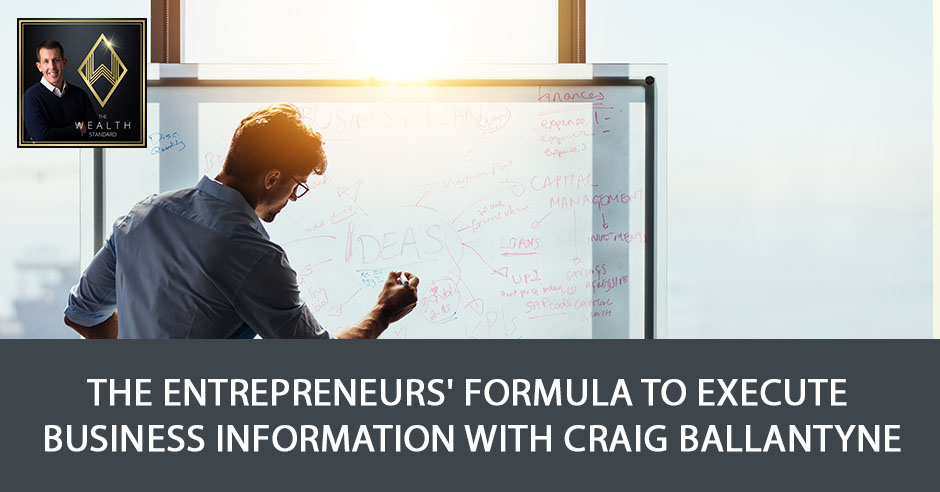
As we near both the end of the year and this show’s season on entrepreneurship, host Patrick Donohoe brings in with Craig Ballantyne, a remarkable guest who talks beyond theories and information about entrepreneurship and goes straight into the implementation, integration, and execution of those information. Craig is a bestselling author, a coach, and the founder of a multiple seven-figure fitness empire and more. Today, he talks from his information wisdom and experience wisdom about establishing an entrepreneur’s drive and passion for his business, correcting efforts that burn them out, and getting rid of bottlenecks and forming some new beliefs. He also shares the key thing that he has discovered among successful entrepreneurs as they continue on their journey this coming 2020.
—
Watch the episode here:
Listen to the podcast here:
The Entrepreneurs’ Formula To Execute Business Information With Craig Ballantyne
My guest is Craig Ballantyne. He’s a good friend of mine. I’ve known him for several years. First, it’s an incredible interview. This guy is so smart not just because he has the information, but because of how easy he’s made it. He’s been on the show back in 2017. You can read that episode as well. Craig figured out an easy way through implementation and there are these little things that get in the way. I know that if you guys read some of the details, you’re going to get a lot out of it. Make sure you get the book. He has some online stuff too that you guys will benefit from because we’re going into 2020 where we can take the ideas that come from other episodes. We take the ideas and lessons from 2019 and have a better you in 2020.
—
We are right at the end of this intense season on entrepreneurship and I hope you guys are excited, especially going into the New Year. We are essentially having some reset especially 2020, some iconic year. I have no one better to be on the show than this guy, Craig Ballantyne. First of all, Craig is the author of The Perfect Day Formula. He is also the author of the Wall Street Journal bestselling book, Unstoppable and The Perfect Week Formula. He also does workshops. He’s a coach for entrepreneurs and business people. He is also the founder of a multiple seven-figure fitness empire, Early to Rise, and more. Craig, it’s amazing to have you on. I wanted to have you here because I’ve talked a lot about information and ideas and had guests on that talk about the power of having your own business, being an entrepreneur, and what that can do to your life. At the same time, it’s all been information. I wanted to talk about the implementation, integration, execution of information.
You probably don’t know this as well. Our meeting was super serendipitous. It happened at a point in my life. I went to your workshop right after Christmas in Denver. The day that I left that workshop, I went to the Denver Hospital. My brother lives in Denver and my niece was diagnosed with cancer. My niece is the same age as my oldest daughter. Thankfully, she’s a survivor, totally in remission. That year, I could use expletives, the right lane that year for me both from a business and a personal perspective. I look at what’s transpired since then and I put much credit to what I learned from you both in that workshop as well as the Perfect Life Retreat down in San Diego. Thank you sincerely, Craig. You’ve made a huge difference. I appreciate all you do. I know you’ve continued to preach your message. I’m excited to have you on so that you can impart not just information wisdom, but your experience wisdom with the audience. Welcome.
It’s going to be a lot of fun. One quick point on that is you take a look at almost everybody in life and there is an inflection point. You call it hero’s journey where if you don’t go through the down, if Luke’s parents didn’t get killed, if the hobbits don’t get kicked out of their little hobbit world and have to go on the journey, there’s no journey. There’s no greatness that comes out of that. You went through yours. I went through my anxiety attacks. Tony Robbins went through being broke. Brendon Burchard went through his injury. My friend went through traumas. Everybody does. You got to come up the other side and you come out stronger. If anybody’s going through something whether it’s marital problems, financial problems or whether it’s like, “I’m not at my best self,” you fight through it. In a few months or a year from now, you’re going to be in a great spot.
It’s the duality of life. There’s a saying that I came across which talks about the depth of sadness or the depth of experience from a negative standpoint that gives you the ability to experience that on an even deeper level on the other side of the spectrum.
My shirt says 11/10. The reason why I made it is because when you went through the program with me, one of the things as we do these weekly accountability updates and I always ask my coaching clients, “On a scale of 1 to 10, what was the last week?” I’ve found that there are three types of people. Let’s start with the negative person first. I call them panic button hitters. Let’s say a person in their company left, they got a refund request and they’re like, “It was a 1/10.” I’m like, “If that week was 1/10, what are you going to rate a week when something bad happens?” There are normal people who rate it between 7 and 9 every week. I then have this group of people who it’s a 16/10. When theirs is 12/10 or 11/10, I know they’ve had a bad week.
After doing this for so long because I’m naturally the guy who would rate everything 7/10. “I made $1 million.” It was 7/10. “I got hit by a truck.” It was 7/10. I’d always be in that melancholy state. I decided, “I’m going to make my new baseline 11/10.” I’m going to have that new mentality that every day above ground you’re grateful for. When we got on a call, you said, “Things are amazing.” I’m like, “That’s an amazing answer.” I got to say amazing more often. I got to be that 11/10. It’s a mindset for everybody reading, the duality of life. Even if it’s a bad day, I’m still grateful for the chance to have a bad day. It’s always 11/10. That’s the new baseline.
Nature doesn’t work on a straight line. Nature is everything. You have storms and your different weather patterns. We know that internally, but then when we’re in the experience because most people don’t necessarily anticipate how they’re going to react to certain circumstances. It becomes difficult at the moment.
It’s easy for you and I when it’s somebody else going through it to say, “You’re going to get through this. You’re going to be okay. It doesn’t matter if it’s a family illness or if it’s a financial loss or whatever it is.” We always say, “We know you. You’re strong, you’re going to get through this.” When it’s us and we’re emotionally attached to the problem whether it’s a team member who’s outstayed their welcome on the team and we should have had a conversation with them a few months ago, but we dread that conversation. You’re going to get through it. You have to be emotionally unattached from your problems. Look at them with outside eyes in an objective manner. All those things that seem like big problems become less of a problem and something to go and fish right away. I’m sure you’ve read Traction by Gino Wickman or his book How to Be a Great Boss.
I haven’t read that one.
When you emotionally detach from your problems, they will become less of what they are and go away. Click To TweetHe’s got a great phrase in there. If you need to have a difficult conversation with somebody or let somebody go, it’s 36 hours of pain. Most people avoid that 36 hours of pain and will go through another 36 weeks of pain, of passive-aggressive, hiding it, not leaning into the conversation. It’ll go on and on. You got to suck it up and go through the 36 hours of pain. It’s going to be a difficult conversation. There’s going to be some emotions, but if you don’t do that, things are going to get worse. This is not just related to letting a team member go or something in entrepreneurship, it’s the same with negative environments or negative people in our lives. We got to have those conversations and step-up to be the best person. It’s easy for us to tell somebody, “You got to go and have that conversation.” When it’s our turn to have that conversation, it’s not easy.
The emotional attachment is huge. That’s where this notion of correction. There’s a concept in economics called the S-curve where you have compounding and growth, but then you have a plateau and even a decline. During that, you’ve grown, but at the same time, you’re still trying to use the same principles and the same processes as you’ve used before. They’re not working. It’s this re-characterization of what the purpose is so that you can have another growth curve. The same happens in life. You see what’s happening and you experienced it emotionally, deal with it. You have to learn to get over that and then you start to rebound again.
The same happens in the gym. You’re talking physiology 101. You’re talking to hockey training 101 from back in the day. You go and you skate or you squat or whatever and your legs are sore the next day. If you don’t go through that, they don’t get stronger. You don’t get fitter. If you practice halfheartedly, you’re left behind on when the actual game comes around. You have to go through that S-curve where you got better but got worse at the same time. When you recover properly, you super compensate what it’s called in physiology and you come back. The next thing you know, you’re playing for the New York Rangers like a certain stud here.
Let’s get into the topic. You have had an incredible entrepreneurial journey and even better, you’ve been able to experience thousands of other people’s journeys. You’ve seen common patterns. Let’s talk through your formula, where you establish this passion and drive to help and transform lives with being able to have a way in which you can simply execute on ideas on business and life in general.
One of the things that drove me from a young age as I got frustrated seeing whether it was family members or other people not getting ahead as quickly as they should have. I then spent the rest of my life since then trying to figure out the fastest way to success. First of all, it was in the fitness world. I went into fitness because I loved hockey and I wanted to be a strength and conditioning coach in the National Hockey League. I started writing for Men’s Health. I then got into creating programs online for people because I saw a lot of people are going to the gym and then I get these emails from people like, “I don’t have time to spend nine hours a week in the gym.” My mind was blown. I was like, “What do you think you have to do to be in the gym nine hours a week to lose weight?” I was showing people how to do it in two hours a week maximum. That was what set me apart from many people and I built that business.
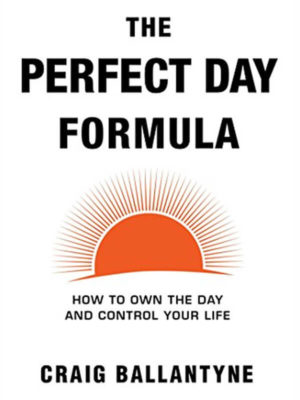
The Perfect Day Formula: How to Own the Day and Control Your Life
Around 2006 and 2007 when my business started taking off, it was like, “I got to do something about my own life. Otherwise, I’m going to be working twelve hours a day, seven days a week and I can’t be doing that. That’s not healthy. That’s not what I want,” all that stuff. I wanted to start building what I call an intelligent business. What’s an intelligent business where you’re doing the things you love, you’re building up a team? It took me a long time to make the full transition from fitness to business coaching. I was able to make that over time. You were part of the journey and a lot of great people like you, written the books from the experience of it. It was all driven from how can we help people get more in less? It’s all about efficiency for me, but efficiency and doing the right things because there’s a whole other world where people are efficient and productive at doing things that don’t matter. That’s one of the biggest wastes of time in life.
You have these natural laws of how things work and there’s a lot of opposites sometimes. In 2018, we bought this used golf simulator in my office. I bought Jack, who’s five, a little set of clubs. I was taught that golf was a game of opposites. It’s not the best story about how strong you hit your swing. It’s about your whole body movement, but also it’s the inside out. In order to hit left, you want to hit the ball going right. It’s an interesting thing. I often reference Seinfeld opposite George when George does the opposite completely. Things start to work out. The less is more concept huge for me. When it comes to the entrepreneur and they have ideas, drive, and passion. What is it about the efforts that often get them to burn out? How do we correct that?
One of the things I’m seeing a lot with the influx of everybody’s got a podcast and the morning routine focus is that people have turned a lot of great things, things that are helpful, into perverse forms of procrastination. I use that phrase in The Perfect Week Formula book. For example, I’ve had clients send me messages at 7:30 in the morning and they said, “I’ve been up since 5:00 AM and I’ve done meditation, gratitude journaling, freeform journaling, yoga, and exercise. I haven’t gotten anything done and I’m all stressed out because I got to go to work.” I’m like, “You did all these things,” and they’re all good things in and of themselves. At some point, you got to draw the line and you got to go, “If they’re that important to me, I’ll do some of them later.”
You do a short routine to get your mind right. This perverse form of procrastination is stealing time from people’s lives. I talk a lot about it in the book because I quote Daniel Pink’s book. It’s called When: The Scientific Secrets of Perfect Timing. He says, “You have the greatest willpower, discipline and intention first thing in the morning.” If you’re getting up and doing nineteen things before breakfast and there’s an article in Inc.com called the 14 Things Successful People Do First Thing in the Morning. It takes 4.5 hours to go through that entire routine because someone made fun of it. If you’re doing that, you’re going down rabbit holes.
In the book, I talk about the farm boy morning miracle routine, to paraphrase from Hal Elrod, our friend. The farm boy morning miracle is I grew up on a farm. What does a farmer do? The farmer gets up and they go to work. They go and do something substantial that has to be done. They feed the cows because the cows don’t have a day off from eating. They definitely don’t take a day off from eating. Most entrepreneurs, “We’re going to have some habits, rituals, and routines.” If you’re finding yourself with way too much busy work and not enough accomplishment, it’s time to take an evaluation of that. The second thing on that side of the equation is that people are over-consuming information. I love books and I don’t like listening to podcasts because I only like to read my content. I don’t like to watch videos and I don’t like to do audio. I’m a little strange. “I listen to Ed Millets. I listen to Patrick’s. I listen to Craig’s. I listen to Craig and Bedros. I listened to Jen Sincero. I listen to Rachel Hollis.” Slow down here. You’ve consumed and gathered all this information and that’s great. If you are not implementing and executing on the information, you’re a walking library. There’s not a lot of money in libraries, unfortunately.
One of the biggest wastes of time in life is being efficient and productive at things that don't matter. Click To TweetI would urge people reading to do an audit and this is a great time to do that. In fact, one of the exercises in the book that I talk about is the billionaire time matrix. It was a worksheet that I invented Christmas 2018. I invented this worksheet because I had a chocolate lab. He was 12.5 years old and he died in August of 2018. When you have a twelve-year-old chocolate lab, they’re like a piece of furniture that needs a twenty-minute walk a day. It’s a little time. He passed away. It was sad. After a couple of months, I’m like, “I sit on my butt way too much here. I need to go and get some walks. I need a new dog. I miss the dog.” Having a puppy that needs three hours a day outside is exponentially different than having a twelve-year-old chocolate lab. At Christmas time, I’m like, “My schedule would not allow me to have a puppy. Let me figure something out here.”
At Christmas time, I love to sit around and not do any work and think. I came up with this exercise, four quadrants, four questions. What do you hate doing? Think about this. Do this with a pen and paper. Sit there and think, “What do I hate doing? What do I hate doing in my business?” It might not be that you can stop doing the things that you hate, but you can rearrange your schedule. What I have found, Patrick is that I was doing sales calls in the morning or I was doing coaching calls in the morning.
The morning is my magic time for writing. I hated it. Not only was I missing out on that 30-minute block or hour block, I was also thinking about it the night before. I was ticked off. I was like, “I got that call. What was I thinking?” I’m losing mental energy. I’m thinking about it during non-work time. Instead of it being an hour-long call, it’s 2 or 3 hours of mental bandwidth because I’m doing something I hate at the wrong time. All I had to do was get a Calendly link. Calendly is one of those things where you set up, schedule times, and not allow anybody to book in my morning. I fixed that problem. It opened up my mornings to accelerate all my other greatness.
I have more time for the dog. That’s just one question. The second question that I have people ask is what you should stop doing? What should your team stop doing? If everybody stopped doing this and we all have stuff in our businesses where if nobody did it, the business wouldn’t suffer. In fact, the business would get better. It goes in our personal lives as well, with gossiping or watching five Netflix shows a night instead of 1 or 2. If you stopped doing it, life gets better and nobody takes it up. It’s not delegated to anybody. It’s not replaced with anything else. Stop doing it. For me, when I wrote the first book, I was doing everybody’s podcast. I had to. I had to learn how to tell my stories, become a better speaker, all that great stuff and sell the books.
It gets to the point of diminishing returns. There’s some young kid in England who has ten listeners and you’re like, “I was once like that young kid. I want to do that kid show to be a great guest for him.” You got to draw the line. You can’t do every kid who’s doing a podcast in his mom’s basement who has twenty listeners. Otherwise, I’m doing sixteen hours of podcasts a day and I don’t get ahead in life. I had to stop doing small podcasts of audiences that weren’t a good fit for me. It’s unfortunate, but you can’t do everything.
It’s a principle of focus. You have this distribution of energy throughout the day. Sometimes there’s a higher distribution in the morning, mid-day, end of the day depending on the situation. I’ve heard all the theories. It’s determining what you’re best at, where you’re good at, what you like doing and focusing efforts there. You use the 2 to 3 hours of the deep work. I did the magic time. It could be in the afternoon. It could be mid-day. It’s essentially taking inventory of your day to determine what that time block is.
That’s one of the time journal exercises, which is another thing that I described in the book and it’s another great exercise that when people match their energy, their focus, and their major activities. All of a sudden, you can go from working twelve hours a day to getting more work done in 7 or 8 hours a day. When you get everything, the stars align, the dots are connected. It’s classic self-reflection. It’s the same with your diet. You could follow somebody else’s restrictive diet and then all of a sudden if you knew about your own physiology, about the things that help you feel full and the things that got you into trouble, you could probably eat more calories on an individualized diet, feel satisfied, lose more weight and be healthier because you aligned what works for your body, energy levels, likes, and dislikes.
That’s essentially the way it is for everything in life. That’s part of this exercise. Those are the first two. I’ll go through the other two. In the bottom left quadrant of the four questions is what is not your job? That’s the question. In this case, we don’t stop it and not delegate it. This is a case where we identify something that you’re doing that you’ve either hired somebody else to do or that it’s simply not your job and you have to go and get somebody else to do it. There are two ways of looking at this. For me, I was doing some sales calls because I was like, “That was a referral or this is an important major client. I don’t want to lose them.”
I was like, “If I’ve hired a good sales guy,” and I got a great sales guy and he’s a great person, “I shouldn’t be taking the calls. I should be coaching him up to the point where he can take on any call.” I put my efforts somewhere else and then he took way more sales calls and it’s been a win-win. I was doing some other stuff where I’ve hired these people on my team. I came from a blue-collar background where when my mom finds out that I don’t do half this stuff and all these other people do these things, she’s like, “You can’t do this. You’re better than that stuff.” Not that she gives me a hard time, but she doesn’t understand it.
The other thing is on the personal side. If there are female entrepreneurs reading, I want you to pay attention to this one because for guys, it’s easy. I’m like, “I’m not cooking at home. I’m not doing this. We’ll be fine to get a person to come in and do the laundry. I’m not doing that. I’ve got a business to run.” For most women, there are societal things there. I have a lot of female entrepreneurs who struggle. If my mother-in-law found out that I didn’t make all the sandwiches, do all the laundry, and make all the dinners while I’m still trying to run my business, there’d be a lot of stress.
It's interesting how quickly things can take off for people when they are able to get rid of the bottlenecks. Click To TweetHere’s the thing, I say to them, “You weren’t put here to clean the house every week, to make every meal, and to cook every dinner. It’s okay. I give you permission to let that stuff go because you were put here to run a business.” Imagine Oprah like, “I can’t do a show now because I’ve got to go and do the laundry or everyone’s going to think I’m a bad person because I don’t do my own laundry.” That’s not how she thinks. She only does what she can do. She finds somebody else to not only do the personal stuff but to come in and make sure that the catering for the guests is great and the audience has great gifts to give away and all that stuff.
We find what’s not our job and we get rid of it so that we can go back to that 5% as my friend Bedros calls it or your unique ability as Dan Sullivan calls it. Everybody’s got it. The one thing Gary Keller and you do it. Finally, the last one is what your distractions are? We all have them. Social media is my number one distraction. I got to set up boundaries to stop myself from wasting time on it. Some people watch too many television shows or it’s time for you to give up watching too many pro sports. Once you get past the age of 27, you got to let that go because you’re older than most of the players. That’s when I let it go because I thought, “This is ridiculous. I’m getting emotionally involved in a game that I’m not even playing in.” It’s those types of things. Good exercises of mental thought because you’ve opened up all this space to do what matters. That’s where you move mountains in your life.
There’s something I’ve thought about quite a bit, which is the idea of uncertainty. There’s the saying, “The quality of your life is in direct proportion to the amount of uncertainty that you can comfortably live with.” It’s establishing essentially some certainty associated with your life of the foundation, whether it’s boundaries and rules that you establish yourself. These aren’t rules imposed on you. These are establishing rules, establishing processes, establishing ways of doing things. It’s the idea of constantly growing the area of your life that you’re best at and should be focused on, which is not going to be the same now as it will be in three years or a year. It’s that constant refinement of what you’re doing because in those zones is where you essentially establish the most fulfillment. It’s the stuff that you love doing. It’s that degree of uncertainty that you’re able to start focusing on and pushing the limit because you have the certainty associated with your foundation in check.
There’s an analogy there that is important for people to understand that should make some light bulbs go off. If you think back to 2007, that’s when the first iPhone came out. Imagine how different the iPhone operating system is now. They’ve gone through eleven iterations or even more of iPhones. That’s the same with our readers. When you started your business, you were the original iPhone. You then developed more high-income skills. You develop world-class capabilities as a leader and every year your operating system changes and improves. You have new parameters that you operate by.
One of the cool things I heard, I was reading some books about Warren Buffett and Charlie Monger. They have a thing that they try and do a challenge where they try and destroy one of their deeply-held beliefs every year. Maybe it’s about investing in a certain area like airlines or it’s about management strategies. They’re always testing their beliefs to either increase the strength in their belief or to realize like, “That may have been true before and it served us, but it doesn’t serve us now because something has changed,” or, “We got lucky because it wasn’t that true and we need to move on.” That’s how you build your operating system up and that’s how you build your world-class expertise in a certain thing. It’s only through getting rid, cutting the fluff so that you can focus on that thing that matters. That’s where you start to shine.

Execute Business Information: If you are not implementing and executing on the information, you’re a walking library. Unfortunately, there’s not a lot of money in libraries.
This is where we’re getting into the execution of things. With what you’ve written about, the workshops that you put on, you essentially are helping clients, people establish the purpose behind it, the foundational elements that will lead to what they’re going to execute. Maybe talk about some of the content of your book that helps in that regard, but then also some of the workshops, live events, and things that you put on around the world that help people to essentially establish like, “What is that belief that I have that needs to be squashed? It might’ve worked before my business. It’s not working as well now.” How do you establish that and then start to confirm some new beliefs?
One of the things we always want to ask people is what’s not working? What is not working in the business? What’s not working in your life? You have to do classic deeper dive in. “Our sales team is not working.” Why is the sales team not working? What’s the bottleneck? Is it the offer that you have? Is it a group of people that you have? Do you have the right people on the right bus in the right seats? Do you have the right systems for your sales? Do you have the right follow-up? Do you have the right leadership in place? There’s a whole bunch of things. You have to do a lot of Socratic questioning.
Maybe you get to, “We have great sales systems and processes. We’re always doing training. We have good follow-up. Our offer is as good as the last time. I see the problem is the culture within the sales staff. We had this guy and he’s been here for a few years. There are a lot of new people on. Our manager of the team is newer. He’s been with me since day one.” You then start to dive deeper and you go, “What would happen if he quit?” It’d probably be better. I got these two questions from Verne Harnish in his newsletter. When you think about somebody who’s not great, question number one is what would happen if they quit? How would you feel? What would happen if you had ten people like this on your team? I’m saying that might be an issue or it’s the leadership. We brought in a manager and we try to start a new style of leadership, but eventually by asking the questions and always looking at what’s the bottleneck? We’re flowing energy. We’re flowing leads. We’re flowing focus. It gets bottled up. What is it that’s bottling us up there? We can break free.
As soon as you break free and you can leverage that, all of a sudden your business can grow. It’s interesting how quickly things can take off for people when they are able to get rid of those bottlenecks. Is there a couple of questions that we ask everybody? No. It’s around that theme and then we have to get specific on it. We can do that for sales. We can do that for marketing. We can do that for leadership. We can do that for personal life. We can do that for our health. We can do that for our personal development. We can do that for everything. As long as you have that growth mindset and not a fixed mindset around everything in your life, then you will constantly evolve. You’ll constantly upgrade that operating system. The sky is the limit. It’s been amazing.
Our growth in our company’s been good. I have some friends who have skyrocketed, total moonshots in their business and you’re like, “Wow.” One of my bottlenecks, Patrick, to be brutally honest and vulnerable is that I don’t receive advice well. I have a big ego and I need to learn to take my ego and put it aside. I was talking to a woman named Shanda Sumpter, a successful female entrepreneur and business coach. She’s had rapid growth. We started off around the same spot. She used the word receiver. She’s become a better receiver. For a lot of us, when feedback is given, we’re good at resistors.
The more knowledge you have, the more dots you connect. Click To TweetIt’s like, “That won’t work because I’ve tried that before. No. Where does that get us?” I was like that for a long time. I want to be a receiver of information and I want to resist saying, “I want to be right. I want to be the smart guy all the time.” Being right versus being a receiver are two different things. That’s what we all need to be. That will help you overcome bottlenecks in any area of your life. To our audience, whether it’s personal or professional, if you become a better receiver of information and less of a resistor and you’re willing to answer difficult questions, your world can change dramatically.
Do you see that ability to receive feedback, receive constructive advice about you as one of the common reasons why some of your friends and businesses are thriving? Is there something else that you would add to that?
The only modification I would add to it is from our friend Matt Smith. He says, “You got to be curious.” The receiver is a naturally curious person. They would go, “That’s interesting that you would give me that advice. Why would you say that?” Whereas the resistor, they’re protecting their ego and they might be curious. They might read lots of books and that stuff. If they’re a resistor to the information, they’re not curious about getting better themselves. I also see the more the person is studying leadership and the more that person is reading biographies and the more that person is checking out their competitors and reverse engineering funnels or whatever it is. It’s important to do that because the more knowledge you have, the more dots you connect. Be a receiver and be a curious person in life. That’s a great characteristic to encourage your children because you become curious about other cultures and be curious about that. I know it’s a great thing to be. You’re going to be overall a better person. The more that you can set aside your ego in life, the better off you’re going to be too.
I love Matt’s perspective on life. There’s a book we were discussing a few years ago around how the educational system in the business world of the West has created this idea of good and bad, right and wrong, or success or failure based on a grade or pay scale. I look at the curiosity side of things. We see ourselves in a certain way, the way other people see us. I’ve connected the same thing. That’s why I’m bringing up this point. I’ve listened to a lot of successful people talk about some of the things that are challenging to them and they were stuck. It was amazing. Everyone else understood where they were at. They didn’t understand what was in their way. It was typically them.
It’s that emotional attachment which we talked about way back at the start.
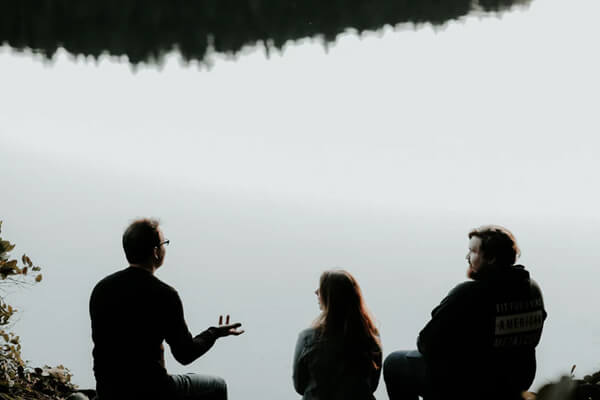
Execute Business Information: Your world can change dramatically when you become a better receiver of information and less of a resistor.
It’s seeded. As much as deep working condition, new behaviors, we have conditioned behaviors from our childhood, from our upbringing, from our harder experiences. It’s difficult sometimes to revisit those, but they’re already there and it’s the unwinding or the untying the knot associated with where those are. First start with, I would say self-love, a self-belief and a realization that even the most successful people have jacked up beliefs. Warren Buffett and Charlie Monger, they’re doing it. The most successful people are doing that because they realize that there are things that they’re not doing perfectly. There are things that may have worked or are not working anymore. The first thing is to let down your guard and not necessarily be defined by other people, instead define yourself.
The more open and willing you are to that, it’s great. If you think about it in terms of your kids, your kids are naturally curious. The curiosity is drummed out of them because when you go into high school and you go into college, it’s right or wrong. Is it? It’s not the best place. The education system does fail the entrepreneur in that way.
As we conclude our thoughts and then I want to give you some time to talk about some of the stuff you have online, things you have on social media, events that you have coming up. We’re approaching this iconic year, 2020. Another decade and movies had the 2020 date in them. 2019, the end of the year. What have you discovered in successful entrepreneurs, those that you’ve worked with, you yourself? What are they doing in December 2019? What are some of those consistent things that you see or habits that people have to prepare for?
That’s the magic billion-dollar word, prepare. Patrick, the most common trait among the most successful people and the more that I work with people, the more I am blown away by how prepared the most successful people are. If you’re preparing for a negotiation, the billionaire has always done more preparation than the millionaire. Whether it’s the entrepreneur that’s leading a specific industry, they do more preparation the night before than their competition. For the people, most high performers have already done the preparation for 2020. We have the annual event that prepares us for 2020. We get all of our clients prepared well in advance. If you’re waiting until January 1st, it’s like waiting to make your to-do list in the morning when you have the greatest willpower, discipline, intention and you’re wasting that time on figuring out what you’re going to do in the day.
To our readers, if you are a little bit behind, get on it now because you have to be prepared to hit the ground running as quickly as possible and not kind of, sort of we have a plan for it. No, deeply prepared, step-by-step to get a fast response, to get a quick victory, to get momentum and motivation. When you have that in place, the results come faster. When you and your team see results, you start to work harder. It’s like going to the gym. If you don’t see results, you get down and you get out of there. If you see results, then you’re like, “I’m going back and I’m going to stay consistent with this.” Those are the people that stay with it.
The most common trait among the most successful people is their preparedness. Click To TweetI had a business coach and she was at Amazon, T-Mobile, and these big companies. I remember her once she was talking to me about annual planning. This was a decade ago. When she did her annual plans and presented it, she would start on the day after she presented on that one. I’m glad you’re saying this because that’s the thing. I would say those that are successful do have this idea of anticipation and preparation. They realize that not everything is going to go 100% plan. It’s that constant refinement as you’re executing. The preparation has done well in advance. That’s one of those characteristics that I value. I wish I could say the same for me all the time. At the same time, I recognize that pattern many successful people preparing well in advance.
I want to tie this up with a little book review. I’ve started reading a book called Eisenhower. It’s a biography of Dwight D. Eisenhower. He spends most of the time talking about him as Supreme Allied Commander in World War II. There’s much that I didn’t know. They wanted to do the D-Day landings all the way back in 1942 and if they would’ve done it, they would’ve got slaughtered. They would have made many mistakes. They learned all this stuff by going through North Africa and then into Italy. They learned, “We don’t know anything.” They learned all about amphibious landings and all the preparation and planning that went into it.
For the Germans, it was a comedy of errors. Hitler sleeps until noon and no one wanted to wake them up on D-Day. That’s a great example of bad leadership. Those companies were like, “I don’t want to tell the boss, he’ll get mad at me.” That’s what happened to the Germans. It wouldn’t have saved them or anything. They had the absolute worst leadership on the German side and then they had all this planning and all these screw-ups from North Africa and Italy on their side, which then made them better for the day that they finally attacked France. It became the greatest military expedition of all time. It’s an amazing story and you can’t make this stuff up, but it applies so much to everything we talked about. I want people to understand every single person is messing up, but they’re planning in advance, they’re going to get punched in the face, they’re going to get up, they’re going to readjust course, and they never stop. To our readers, make that your mission for 2020.
Talk a bit about some of the resources you have other than your book. What are some online resources that you have, social media? What are some of the other things you’re doing to keep this mission moving forward?
We do a lot on Instagram. People that use Instagram, I’m @RealCraigBallantyne. We have a Facebook group called The Perfect Business Formula. It’s a free Facebook group. We’re putting great content out every day. We have the books and then The Perfect Day Formula Kit, which is my life’s work in a box that’s helped a lot of people like yourself. We have some programs that we help. We have online coaching, it’s called 2X – 10 Less. It helps you double your income and work ten fewer hours per week, which is another program that we’re helping. That’s our mass-market program to get as many people into our world and you can get all of these tools and systems so that they can make that big leap and big growth. If anybody wants to ever contact me, through those channels is great or Support@EarlyToRise.com. You can always email me there, too.
Craig, this has been amazing. I appreciate your willingness to come on. I appreciate what you do. It makes a huge difference and it’s a side of the entrepreneur business world that there’s not much of. The passion you’ve shown over the years is inspiring. I appreciate all the things that you continue to do because it is making a difference.
It’s interesting because it’s like you do financial stuff. You make smart decisions with your money and by talking about all this stuff, I have to push myself to live a better life every day, make the right decisions, walk the talk, talk the book, and all that stuff. It keeps me on the straight and narrow too. It helps me as much as it helps everybody. To our readers, I’m looking forward to hearing from you, giving you some tips, and that leverage point that can make a huge difference to overcome those bottlenecks for you.
Craig, it’s been a pleasure.
Thank you. Best wishes to all the family. We’ll talk soon. I can’t wait to hear about 2020.
Thanks, Craig.
Important Links:
- Episode – Previous episode Craig Ballantyne
- Craig Ballantyne
- The Perfect Day Formula
- Unstoppable
- The Perfect Week Formula
- Early to Rise
- Traction
- How to Be a Great Boss
- When: The Scientific Secrets of Perfect Timing
- 14 Things Successful People Do First Thing in the Morning
- Calendly
- Eisenhower
- @RealCraigBallantyne – Instagram
- The Perfect Business Formula – Facebook Group
- The Perfect Day Formula Kit
- 2X – 10 Less
- Support@EarlyToRise.com
- Instagram.com/RealCraigBallantyne
Love the show? Subscribe, rate, review, and share!

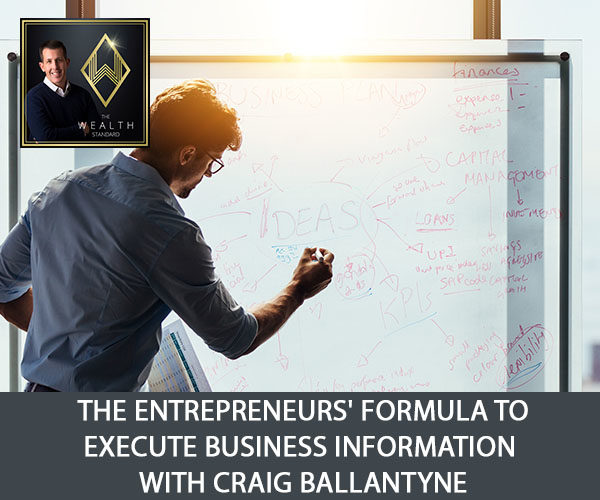
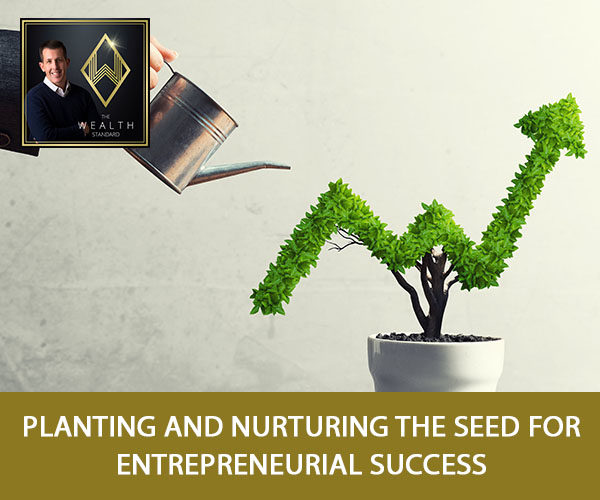
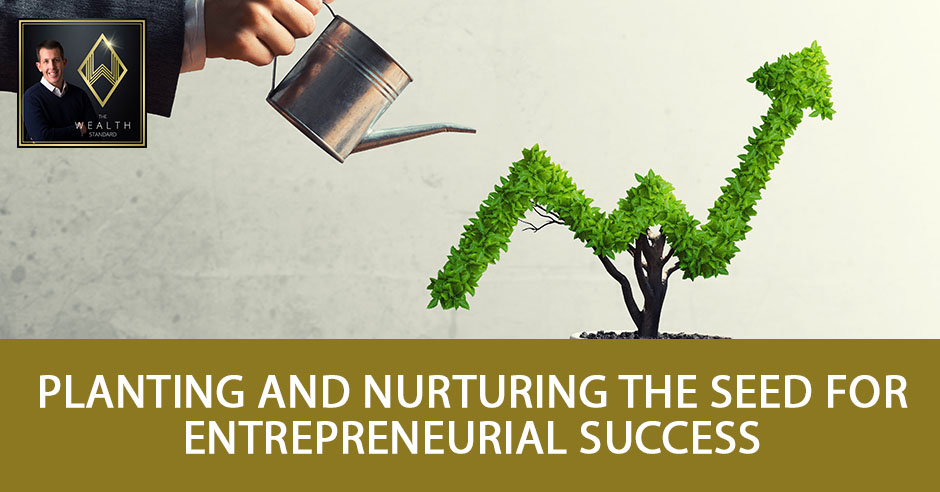
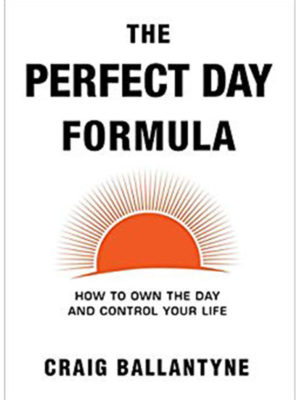


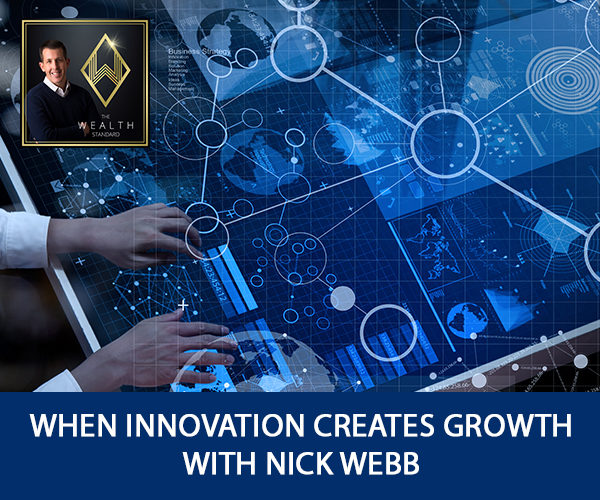
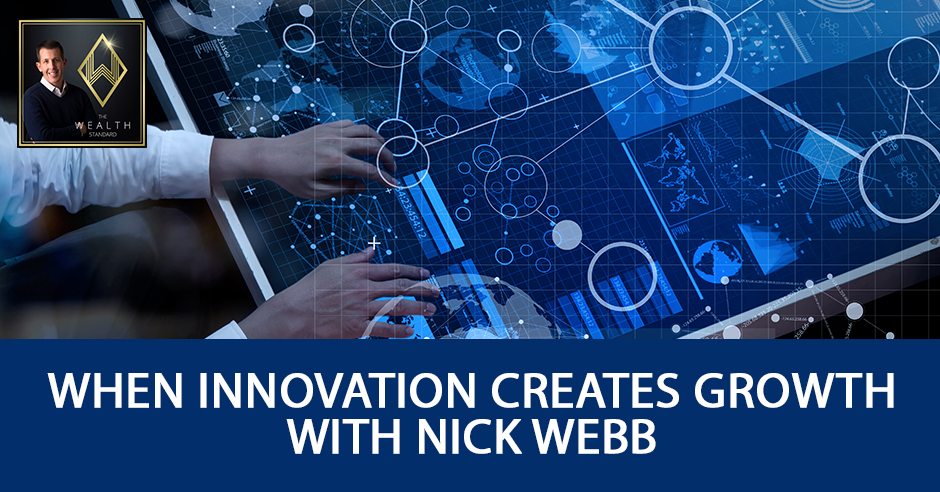
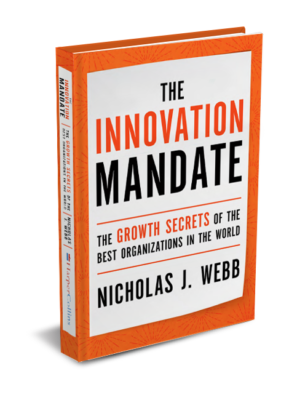
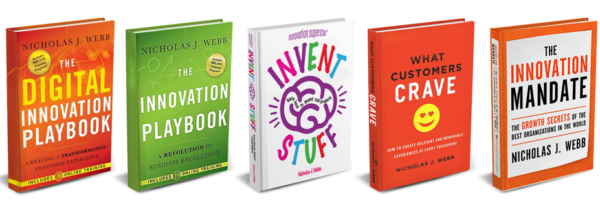
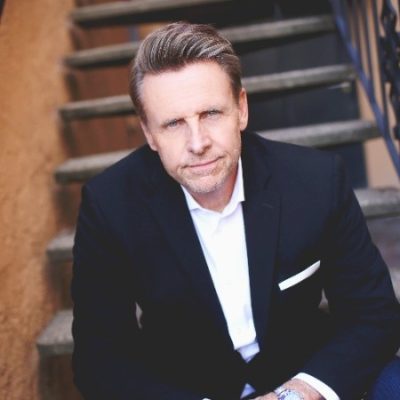 Nick Webb is a world-renowned Strategist, Bestselling Author and Futurist. As an Inventor, Nicholas invented one of the first wearable technologies, and one of the world’s smallest medical implants. He has been awarded over 40 Patents by the US Patent and Trademark Office for a wide range of cutting-edge technologies. Nicholas is the founding CEO of LeaderLogic, LLC, a Management Consulting Firm. Nicholas is the author of The Innovation Playbook, The Digital Innovation Playbook and his Number One Best-Selling Book on Patient Experience entitled, What Customers Crave.
Nick Webb is a world-renowned Strategist, Bestselling Author and Futurist. As an Inventor, Nicholas invented one of the first wearable technologies, and one of the world’s smallest medical implants. He has been awarded over 40 Patents by the US Patent and Trademark Office for a wide range of cutting-edge technologies. Nicholas is the founding CEO of LeaderLogic, LLC, a Management Consulting Firm. Nicholas is the author of The Innovation Playbook, The Digital Innovation Playbook and his Number One Best-Selling Book on Patient Experience entitled, What Customers Crave.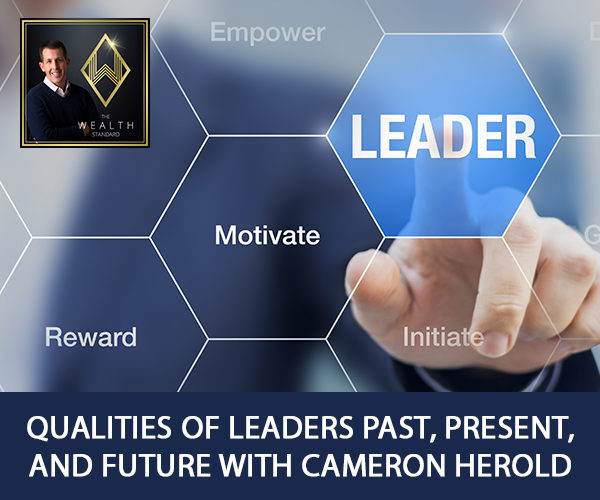
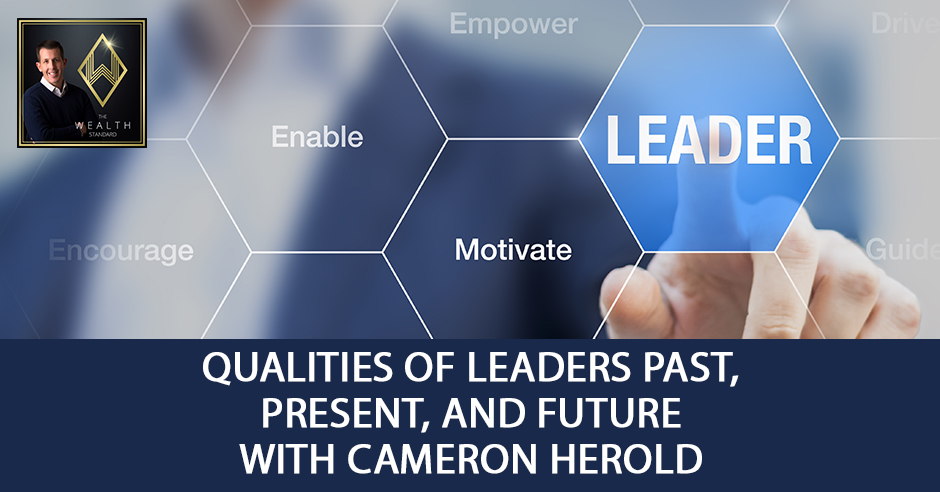



 Cameron Herold is host of the Second in Command podcast and bestselling author of The Miracle Morning for Entrepreneurs: Elevate Your SELF to Elevate Your BUSINESS, Meetings Suck: Turning One of the Most Loathed Elements of Business into One of the Most Valuable, and the new books Free PR: How to Get Chased By The Press Without Hiring a PR Firm and Double Double: How to Double Your Revenue and Profit in 3 Years or Less (in its seventh printing).
Cameron Herold is host of the Second in Command podcast and bestselling author of The Miracle Morning for Entrepreneurs: Elevate Your SELF to Elevate Your BUSINESS, Meetings Suck: Turning One of the Most Loathed Elements of Business into One of the Most Valuable, and the new books Free PR: How to Get Chased By The Press Without Hiring a PR Firm and Double Double: How to Double Your Revenue and Profit in 3 Years or Less (in its seventh printing).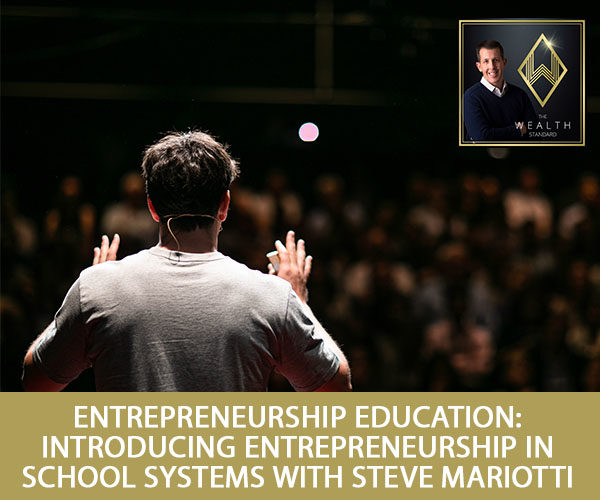
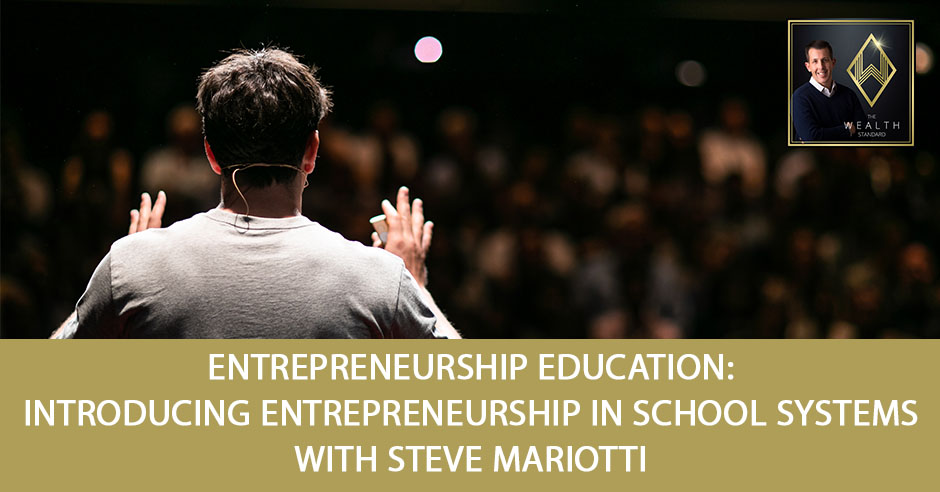
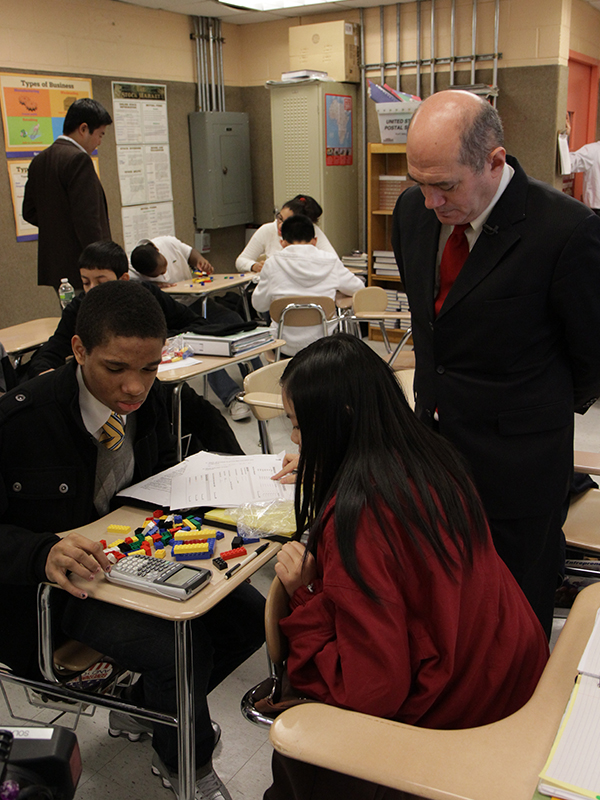



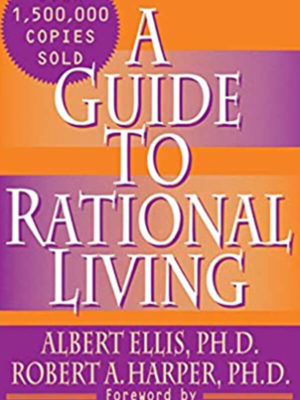
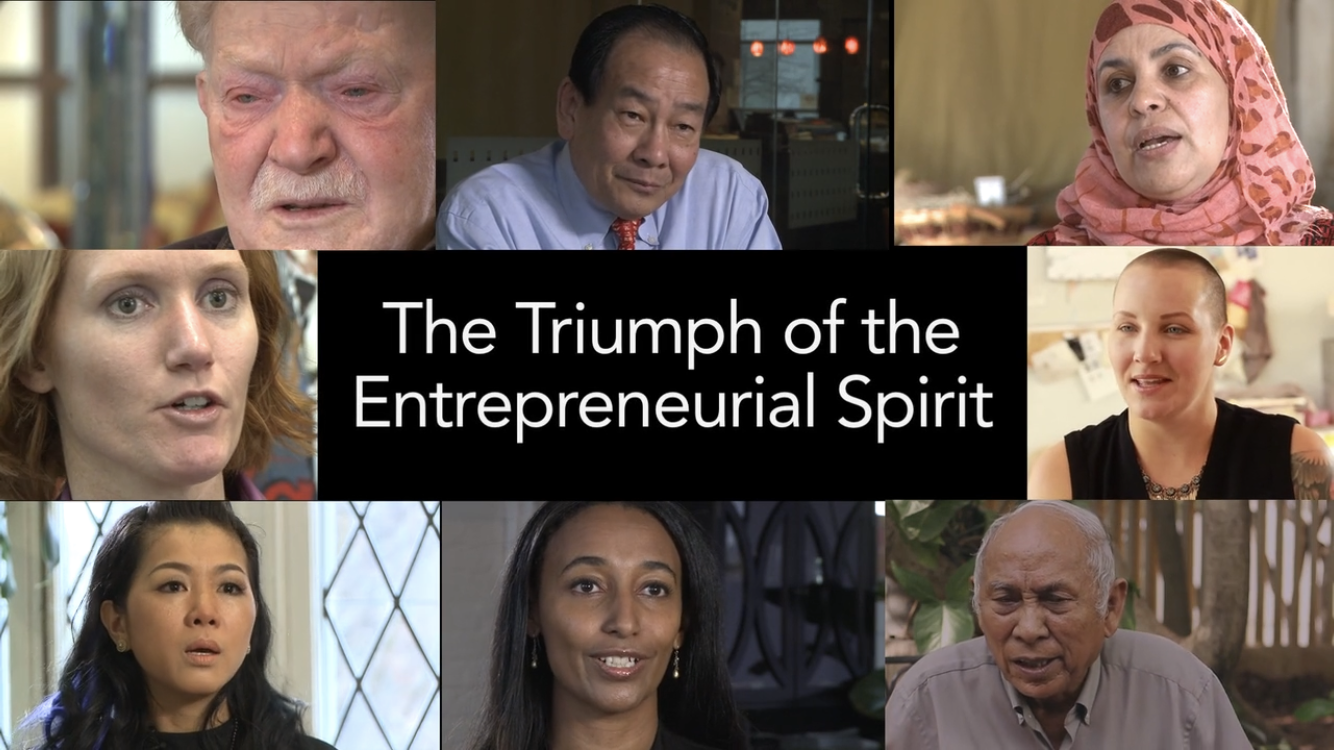
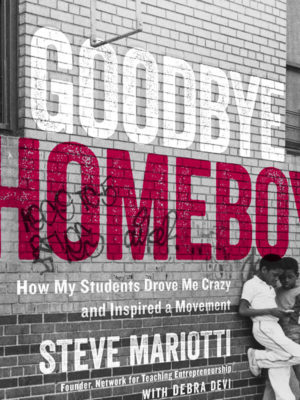
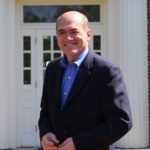 Steve Mariotti is an advocate for entrepreneurs and entrepreneurship education worldwide. He is the founder and former president of the global nonprofit Network for Teaching Entrepreneurship (NFTE), and the author of books, textbooks and articles exploring the transformative power of entrepreneurship for low-income communities. Steve’s memoir of his early career as a NYC public high school teacher, Goodbye Homeboy: How My Students Drove Me Crazy and Inspired a Movement was published this year by BenBella Books and immediately rose to #1 on Amazon.
Steve Mariotti is an advocate for entrepreneurs and entrepreneurship education worldwide. He is the founder and former president of the global nonprofit Network for Teaching Entrepreneurship (NFTE), and the author of books, textbooks and articles exploring the transformative power of entrepreneurship for low-income communities. Steve’s memoir of his early career as a NYC public high school teacher, Goodbye Homeboy: How My Students Drove Me Crazy and Inspired a Movement was published this year by BenBella Books and immediately rose to #1 on Amazon.













